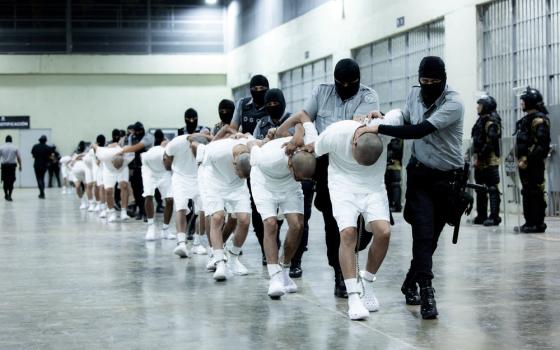By JOHN L. ALLEN JR.
New York
Bioethical questions are among the most polarizing “wedge issues” in today’s politics, because all sides believe fundamental human dignity is at stake – making compromise difficult, and debate fractious. That’s the dynamic in the broader culture, and matters inside the Catholic Church often don’t look much different.
The latest proof came Thursday in Italy, where a medical review board voted unanimously to clear an anesthetist who helped a patient with degenerative muscular dystrophy to disconnect his respirator on Dec. 20, causing death. The patient, Piergiorgio Welby, who had pled repeatedly to be allowed to die, was at the center of a bitter national debate over whether patients have the right to refuse life-sustaining treatment.
The review board found that because Welby was fully in command of his faculties, and because the anesthetist, Mario Riccio, did nothing that directly caused Welby’s death, this was not a case of physician-assisted suicide.
“Welby was helped in dying, not to die,” said the head of the commission.
It’s still possible that Riccio could be charged with a crime under laws against euthanasia, though most Italian observers regard that as a long shot.
Though it may seem odd to Americans accustomed to the separation of church and state, the doctors on the review board felt the need to appeal to Catholic principles to justify their decision, which flew in the face of the line taken by Cardinal Camillo Ruini, the powerful president of the Italian bishops’ conference. Ruini called what happened a form of euthanasia, and refused permission for Welby to be given a Catholic burial.
Even Benedict XVI appeared to enter the discussion on Christmas Day, when he said: “What are we to make of those who choose death in the belief that they are celebrating life?”
Thus it was that a board of physicians found itself citing Cardinal Carlo Maria Martini, the former archbishop of Milan, to justify reaching a different conclusion.
On January 21, Martini published an article in the Italia daily Il Sole 24 Ore in which he made a distinction between euthanasia and a patient’s right to refuse treatment, saying that physicians who help patients make the latter decision should not be charged with a crime. In context, it was widely understood as a defense of Riccio.
Martini, who himself suffers from Parkinson's Disease, called for Italy to follow France’s example and introduce legislation allowing patients to request the ending of treatments. He said he opposed active euthanasia, where a patient requests a fatal injection, but also opposed “unreasonably obstinate” treatments that keep the terminally ill alive.
“Avoiding drawn-out therapy need not mean looking for death, but accepting that you cannot stop it,” Martini said.
An Italian pediatrician who sat on the review board which judged the Riccio case, Giovanni Fasani, said that for the Catholics on the board, Martini’s article was decisive.
“The position taken by Martini opened our eyes,” Fasani said. “It did so for me, and I believe for all of us.”
“He defined clearly the border between euthanasia and refusing treatment,” Fassani said. “He recalled that an ill person has a right to a dignified existence, and that the catechism is not absolutely opposed to discontinuing therapy.”
The revelation that Martini had provided the intellectual basis for Catholic support of Riccio provoked reaction in more conservative sectors of Italian Catholic opinion. In another development that might leave Americans accustomed to church/state distinctions scratching their heads, an Italian politician actually questioned Martini’s theological competence.
“The archbishop of Milan is a fine Biblical scholar, but he’s not a moralist or a theologian,” said Senator Francesco Cossiga, a former President of the Republic. Cossiga, a member of the old Christian Democrats, has remained close to the Catholic Church, and is on good terms with Ruini.
The split between Martini and Ruini on the Welby case, and the divergence of opinion between Catholic physicians and church officials which the Riccio verdict indicates, is undoubtedly part of the background to the recent announcement from the Congregation for the Doctrine of the Faith that a new document on bioethics, a successor to 1987’s Donum vitae, is in production.
In the wake of the Welby case, as well as debates over Terry Schiavo in the United States, the issue of where the boundary falls between euthanasia and a patient’s right to discontinue treatment are expected to loom large in that document.




